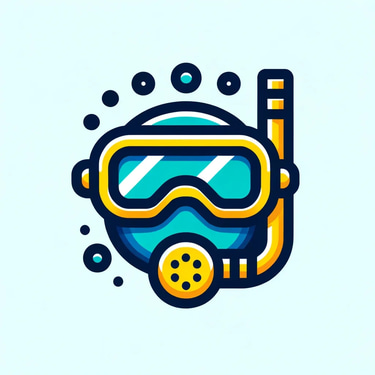Single‑Use Plastics Divers Should Say No To
Learn which single‑use plastics—from bags and bottles to straws and packaging—divers should avoid. Find out how these items damage reefs and wildlife, and what alternatives support healthy oceans.
PRESERVING OUR GREAT LAKES AND OCEANS


Single-Use Plastics Divers Should Avoid
Why Single‑Use Plastics Are So Harmful
Every year, more than 8 million metric tons of single‑use plastic—that’s about 17.6 billion pounds, roughly the weight of 90,000 blue whales—enter the ocean. Items like bags, bottles, and straws are used briefly but persist in marine environments for centuries, eventually fragmenting into microplastics that harm marine animals, reefs, and even people.
Only about 9 percent of all plastic is recycled. The rest ends up in landfills, incinerated, or washed into waterways, ultimately making its way to the ocean where it disrupts ecosystems.
Plastic Bags
Lightweight and easily blown into waterways, plastic bags are consistently among the deadliest items found during beach and underwater cleanups. Sea turtles mistake them for jellyfish and seabirds ingest them accidentally. Both scenarios often result in fatal blockages.
Plastic Bottles and Caps
Plastic bottles and caps are among the top ten items found in coastal cleanups. Bottle caps are especially hazardous to marine life since animals may swallow them, causing injuries or digestive issues.
Straws, Utensils & Packaging
Small, lightweight, and non-biodegradable, straws, cutlery, and food wrappers float into oceans easily. Marine animals may ingest or become entangled in them, especially seabirds and turtles.
Six-Pack Rings & Monofilament Line
Six‑pack rings and fishing line entangle marine life such as dolphins, turtles, seabirds, and fish. These items can cause injury or suffocation and often persist in the ocean environment for decades.
Impacts on Reefs and Marine Life
When plastic comes into contact with coral reefs it increases disease risk significantly—from around 4 percent on clean reefs up to 89 percent on reefs with debris presence. Marine animals that ingest or become entangled in plastics may suffer from suffocation, infection, starvation, injury or death.
Plastic may also carry pathogens that infect corals or travel up the food chain via microplastics disturbing wildlife and impacting human health.
What Divers Can Do to Help
Take the #NoExcuseForSingleUse pledge, using reusable bags, bottles, and utensils whenever possible.
Participate in Dive Against Debris cleanups to remove plastics from dive sites and report data to Project AWARE.
Refuse single‑use plastics during travel—choose refillable drink containers, reusable bags, bamboo or steel straws, and compostable packaging.
Support policies banning or charging for single‑use plastics, such as mandatory plastic bag fees, which have cut beach litter by up to 47 percent.
Educate your community and guest divers on why small single‑use items add up to major marine threats.
Happy and safe diving,
The ScubaBlast Team
Salat, T. (2024, March 24). The Top 10 Most Harmful Plastics for Marine Life & How to Make Eco‑Friendly Choices. Retrieved from https://www.retakegreen.com/stories/the-top-10-most-harmful-plastics-for-marine-life-amp-how-to-make-eco-friendly-choices
Ocean Conservancy. (2025, January 15). Plastic Bottles & Lids Among Top 10 Most Commonly Found Items at Cleanups. Retrieved from https://oceanconservancy.org/blog/2025/01/15/plastic-bottles-lids-most-commonly-found-cleanups/
Dive Against Debris — Project AWARE. (2018, June 23). Dive Community Says No to Single‑Use Plastics. Retrieved from https://www.scubadiving.com/dive-community-says-no-single-use-plastics
Ocean Blue Project. (n.d.). The Unintended Impact of Single‑Use Plastics. Retrieved from https://oceanblueproject.org/the-unintended-impact-of-single-use-plastics/
Oceana. (2023, November 14). Report: Switching to Reusable Packaging Could Eliminate 1 Trillion Single‑Use Plastic Bottles and Cups. Retrieved from https://oceana.org/press-releases/report-switching-to-reusable-packaging-could-eliminate-1-trillion-single-use-plastic-bottles-and-cups/
The Guardian ASP user. (2020, December 14). Deadliest plastics: bags and packaging biggest marine life killers. Retrieved from https://www.theguardian.com/environment/2020/dec/14/deadliest-plastics-bags-and-packaging-biggest-marine-life-killers-study-finds
Wikipedia. (2025). Marine plastic pollution. Retrieved from https://en.wikipedia.org/wiki/Marine_plastic_pollution
Washington Post. (2025, June 19). Plastic bag fees and bans help protect beaches and riverbanks, study finds. Retrieved from https://www.washingtonpost.com/climate-solutions/2025/06/19/plastic-bag-fee-ban-litter-pollution/
